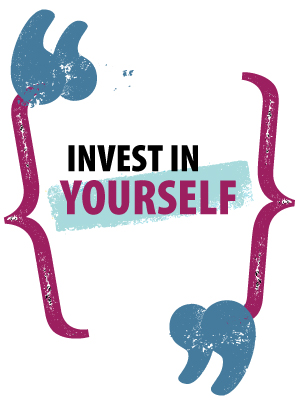
Workplace Readiness Training
Workplace readiness traits describe skills employers seek from most employees. These are skills and behaviors that are necessary for any job. Work readiness skills are sometimes called soft skills, employability skills, or job readiness skills.
- These abilities help employees learn how to interact with supervisors and co-workers.
- They help reinforce the importance of timeliness and build an understanding of how we are perceived by others.
The development of these job skills can help individuals succeed both at work and in other areas of their lives. Service providers are not only great trainers in these skill areas, but are also leaders who can teach by example.
Practices | Strategies | Tools
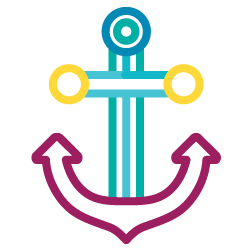
Promising Practices
Employers value employees who can communicate effectively and act professionally. No matter what technical skills a job may require, every job requires good social skills/interpersonal skills.*
These types of services may be provided through instruction, or other activities where the student can learn and apply knowledge.
*Source: This information is obtained from and aligns with the Pre-Employment Transition Services (Pre-ETS) requirements as outline by the Workforce Innovation Technical Assistance Center (WINTAC)
Soft Skills Training Data
PROMISE youth who completed Skills to Pay the Bills training were more than 5x more likely to obtain employment and have higher hourly wages.
Source: Wisconsin Promise
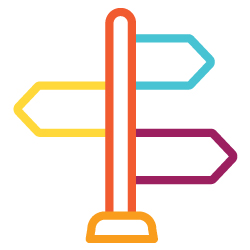
Strategies
Consider incorporating these strategies into your Workplace Readiness Skills training:
- Connect school experiences to real-life work activities and future career opportunities.
- Provide opportunities for in-depth student engagement in hands-on learning, and direct exposure to business and workplace culture.
- Facilitate direct employer and/or community involvement in the design and implementation of Workplace Readiness Experiences to ensure students are exposed to real-work, current business and industry standards, and receive an accurate evaluation of work performed based on relevant skills.
Source: Workplace Readiness Training, hosted by WINTAC and NTACT
Individual
- Identify and learn how to use assistive technology in the workplace
- Meet with a benefits counselor
- Develop individual transportation plans and learn necessary mobility skills
- Provide self-evaluation instruction/ programs that include the same topics as found under a group setting:
- Maintaining healthy relationships
- Work and study habits
- Planning and goals setting
- Using community resources
- Budgeting and paying bills
- Computer literacy
Group
- Provide lessons on strategies to support independence at work such as time management, self-monitoring performance, and accepting constructive feedback
- Conduct simulations to develop social and communication skills
- Develop financial literacy; including banking and budgeting skills
- Provide role-play experiences for working as a team
- Develop communication and interpersonal skills
- Provide group orientation and mobility skills (i.e., to access workplace readiness training or to learn to travel independently)
- Develop job-seeking skills
- Instruct students on understanding employer expectations for punctuality and performance, as well as other "soft" skills necessary for employment
Source: CRP Pre-ETS Guidebook: Strategies for Community Rehabilitation Providers to Collaborate on Pre-ETS

Communication and Engagement Strategies
Training tips for working with individuals with disabilities:
Gather basic information about participants before training.
- Do any participants need any accommodations?
- physical accessibility of the space
- captioning on videos
- presenting material in multiple formats: handouts, powerpoint, video, small group discussion, lecture, hands-on activities, etc.
- identifying any reading or language barriers. Ask for volunteers to read, use activities that don’t require reading, focus on hands-on approach whenever possible.
- considering instructor to participant ratios
- asking participants what works for them! They may have ideas based on experience. Don’t forget the basics.
Training tips for student and parent/family engagement:
-
- Remember Pre-ETS is really “enrichment” not “required” coursework for students
- Make activities engaging, relevant, and accessible (realistic and can be done at home)
- Prioritize what you are asking of families, so they do not get overwhelmed
- Find ways to talk directly to families
- Arrange regular times to connect or touch base
- Connect families with other families
- Connect students with peer support like “best buddies”
- Celebrate success of what students are doing
- Celebrate the parents too – sometimes need to pay attention to parents first because parent’s needs are not being met.
Source: Dr. Erik Carter, “Supporting Tennessee's Students Remotely”, hosted by Transition TN.
Consider family support:
- Discuss/reinforce employment expectations
- Facilitate/model effective communication
- Reinforce this is a partnership
- Be mindful of diverse cultural backgrounds
- Discuss supported decision-making, and encourage parents to have high expectations
- Align the motivations and goals of education and VR with the motivations and goals of the families (all while giving students a voice)
- Ask the right questions to better understand what impacts a parent’s vision for the future, and what causes them concern
- Establish a working relationship with your state’s parent training center
Source: Workplace Readiness Training, hosted by WINTAC and NTACT
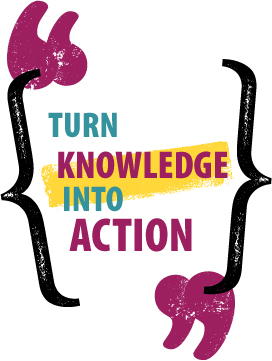
Training Tips
These suggestions are based on lessons learned through Wisconsin Promise and other projects focused on working with youth, individuals, and families.
Tools
Following are some tools and resources to assist you with your career planning activities.
Featured Resources
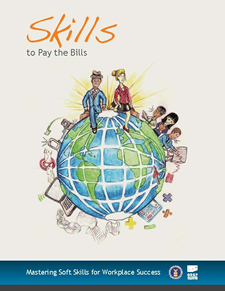
Skills to Pay the Bills
A curriculum developed by ODEP focused on teaching "soft" or workforce readiness skills to youth, including youth with disabilities. Skills to Pay the Bill Training
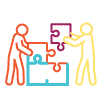
Life Skills Training
Casey Life Skills (CLS) is a free tool that takes a look at the behaviors and competencies youth need to achieve their long-term goals. It aims to set youth on their way toward developing healthy, productive lives. Casey Life Skills
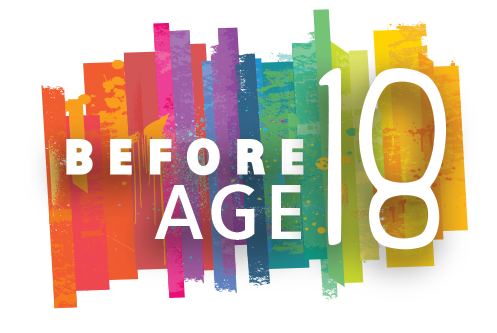
Before Age 18
For youth with disabilities and their families, get ready to consider choices, explore the possibilities, and take action now to prepare for age 18! Before Age 18 Website
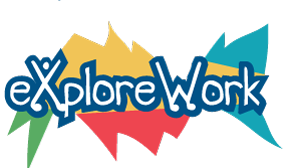
Explore-Work.com Training
Online training to help youth explore their future -- follows the five Pre-ETS training topics. Explore-Work Website
Related Resources
- Workplace Readiness Training Resources from the Workforce Innovation Technical Assistance Center (WINTAC)
- CRP Pre-ETS Guidebook: Strategies for Community Rehabilitation Providers to Collaborate on Pre-ETS
- Essential Skills to Getting a Job: What Young People with Disabilities Need to Know from the Office of Disability and Employment Policy (ODEP)
- National Technical Assistance Center on Transition: The Collaborative (NTACT:C)
- National Deaf Center: Pre-ETS Guide
